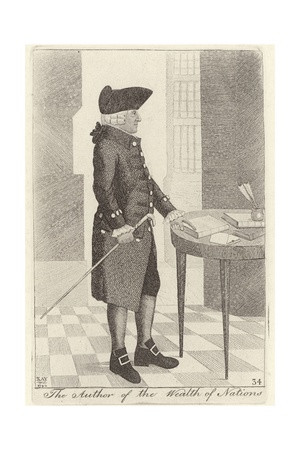“Fourthly, of the acquired and useful abilities of all the inhabitants or members of the society. The acquisition of such talents, by the maintenance of the acquirer during his education, study, or apprenticeship, always costs a real expense, which is a capital fixed and realized, as it were, in his person. Those talents, as they make a part of his fortune, so do they likewise that of the society to which he belongs. The improved dexterity of a workman may be considered in the same light as a machine or instrument of trade which facilitates and abridges labor, and which, though it costs a certain expense, repays that expense with a profit.”
—Adam Smith, An Inquiry into the Nature And Causes of the Wealth of Nations, Book 2
Human capital is the fourth kind of capital Adam Smith describes. This applies to any knowledge or experience, which is why so many people get an education. In the USA, as in many other countries, education to a certain point is provided free of charge, because the whole society benefits.
When we see the benefits of learning classical music in such diverse areas as academics, addiction, behavior, crime, health, memory, mood, pregnancy, and stress reduction, we begin to see that the investment, as Adam Smith points out, is profitable, not only to the individual, but to society at large.
Knowledge is expandable and self-generating with use: as people get more experience, their knowledge base will increase, as will their endowment of human capital. The economics of scarcity is replaced by the economics of self-generation. Knowledge can be moved and shared. This transfer does not prevent its use by the original holder. However, the transfer of knowledge may reduce its scarcity-value to its original possessor. [Adapted from Wikipedia.]
Therefore, the investment of time, effort, and money in classical music lessons is not only repaid and profitable to the individual, but it generates income in the larger economic sense. We’ve already seen how classical music saves a fortune over a lifetime; what is missing from this view is the greater social impact of a population learning classical music on a society. There’s no way to adequately measure this at the moment; a little common sense and thought will make the profit to society as a whole clear.
The arts is considered to be part of the core curriculum of the USA’s No Child Left Behind Act; it’s up to us to take the proof into our school boards and demand more than the state-mandated minimums. The value of music education was unanimously confirmed by Congressional resolution. It’s not only for the good of your child, or of your family, but your neighbourhood, your city, your country, and the world at large. Learning classical music creates wealth! Even Adam Smith thinks so!
